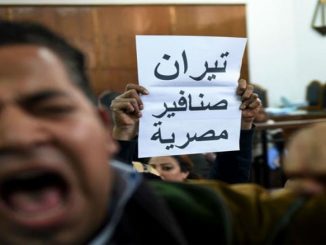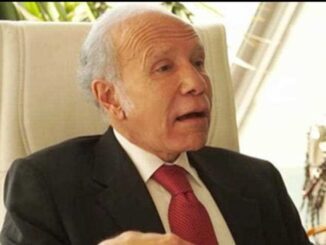
Egypt needs to get more transparent about its debt, and that includes amounts owed by state-owned enterprises in an economy where the government plays too large a role, a senior World Bank official said, according to Bloomberg.
The North African nation revived a plan to sell stakes in state-controlled firms earlier this month as part of an economic revamp that aims to secure aid from the International Monetary Fund and regional allies.
Egypt’s recent $3 billion deal with the IMF also included a commitment to shrink the footprint of state-run enterprises.
“Egypt needs debt transparency that touches on the debt of state-owned enterprises,” Ferid Belhaj, the World Bank’s president for Middle East and North Africa, said in an interview with Bloomberg TV.
“They are moving ahead with it, but there is still effort to be made,” he said.
Selling state assets
The Egyptian government has put the state’s assets up for sale to hunt extremely needed foreign exchange.
Egypt, one of the region’s most indebted countries, is trying to overhaul an economy tipped into crisis by Russia’s invasion of Ukraine, which sent food and energy prices soaring and hit tourism revenues.
Last week Moody’s Investors Service downgraded the country’s credit rating deeper into junk territory, citing its declining ability to absorb shocks.
Private companies in Egypt, whose role is central to job creation, have struggled to thrive in an economy dominated by state entities, in particular those belonging to the military.
This state dominance is an issue in Egypt and throughout the region, according to Belhaj.
“The state should not be the entrepreneur, the state is the regulator and frames the broader parameters of the economic activities,” he said.
Debt is also an issue in Lebanon, Tunisia and Jordan, Belhaj said, calling for efforts to improve transparency and the management of the economy. He also voiced concerns about regional jobless rates, especially among younger people.
“The youth in MENA are sitting there, many of them idle,” he said. By 2050, some 300 million young people will be “knocking on the door of the job market.”
“It is a huge liability but it’s an immense opportunity, and this is where the opening up to the private sector, rethinking the role of the state in the economy becomes simple,” he said.
Price hikes
In fact, the continued price hikes add further burden on Egyptian families amid the spiralling inflation in the country.
For almost a year, galloping inflation in Egypt has strained the budgets of Egyptian families to their limits as more people face a dire financial situation.
“Some basic commodities have skyrocketed, and many families even no longer afford to make a purchase,” Hassan Abdul-Rahman, a 43-year-old garbage collector in the Egyptian capital of Cairo, said, according to Xinhua.
The prices of some basic commodities like rice and tomatoes have doubled, he said, adding that he has been looking for an extra night job in order to bring food on the dining table for his three kids.
“I am not an economist, but the situation is very difficult … we are in urgent need of solutions to the crises, especially the poor and low-income people,” he added.
Egypt’s annual headline inflation rose to 21.9 percent in December 2022, up from 19.2 percent a month earlier and 6.5 percent in December 2021, according to Egypt’s Central Agency for Public Mobilization and Statistics.
Since early 2022, the Egyptian economy, which had yet to recover from the COVID-19 pandemic, was dented by surging global food and oil prices following the Russia-Ukraine conflict, given that the most populous Arab country is also the world’s largest importer of wheat, most of which came from the two warring countries.
A series of U.S. interest rate hikes have also battered the Egyptian economy, making hot money flee from Egypt and other developing countries which have to devaluate their currencies, Abu Bakr al-Deeb, an advisor to the Cairo-based Arab Center for Research and Studies, told Xinhua.
Within a year, the Egyptian pound experienced three devaluations against the U.S. dollar.
On March. 21, 2022, Egypt’s central bank devalued the pound by nearly 17 percent again the U.S. dollar, before curbing some losses. This was followed by another 14.5-percent devaluation of the pound on Oct. 27 last year and a drastic single-day decline of 13 percent in early January.
Egypt’s devaluation moves were endorsed by the International Monetary Fund, which approved in December 2022 a 3-billion-dollar loan to Egypt over the next 46 months as a support package.
For Marwa Hamid, a grocer living in Cairo’s Helwan district, the situation is no better than that for Abdul-Rahman.
“Sales significantly decreased over the past months due to the notable increase in commodity prices, hurting my financial status,” the middle-aged lady said.
However, in a bid to control the price increase, the Egyptian government started to sell some basic commodities at its outlets at affordable prices from January to the end of the Muslims’ holy month of Ramadan in late April this year, reported Xinhua.



